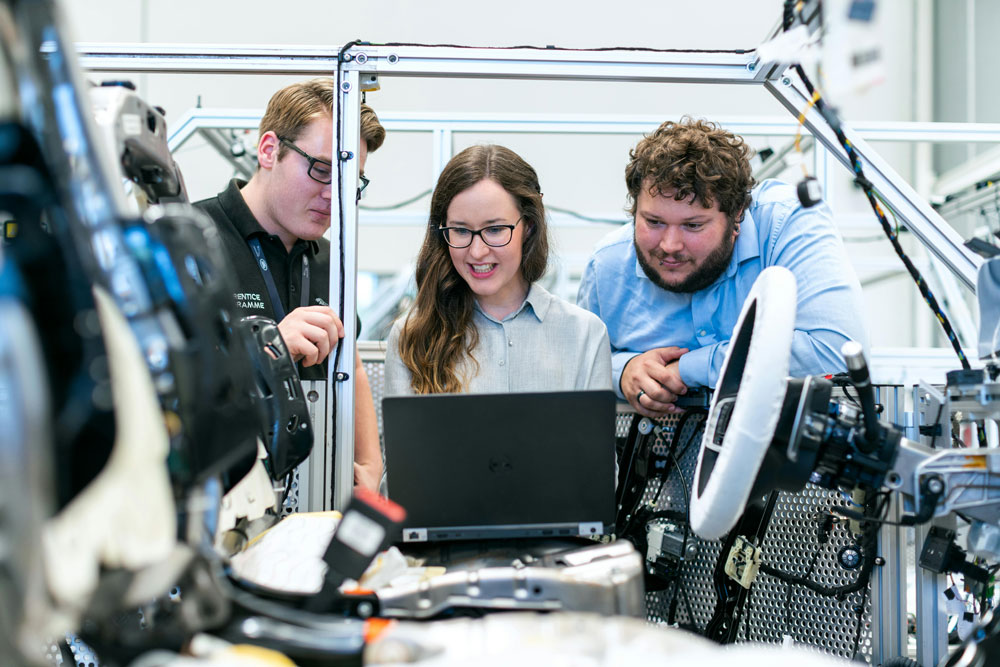Since its inception in 1932 with the launch of Howard Johnson restaurants, franchising has become a very popular business model throughout the U.S. As of 2017, there were more than 745,000 franchises operating in the U.S, and franchise opportunities can be found in hundreds of businesses ranging from restaurants and cleaning services to printing, financial services, travel, auto body repairs and many more.
What has driven this explosion in franchise opportunities? The opportunity for people to own their own business with minimal risk. For millions of U.S. citizens, the “American Dream” is the ability to own their own home. For others, the desire to own their own business is equally important. And with good reason.
The main attraction of owning a franchise business is the opportunity to be your own boss while taking much of the risk out of starting a business. When you buy a franchise, you’re getting a proven business model and a known brand. The franchisor, the organization that owns the brand name and business model, has already done the work of establishing a successful system for their type of business. This allows franchisees to avoid many of the struggles and mistakes that come with starting a business.
Buying into a recognized brand also minimizes one of the biggest challenges of starting a business: attracting a loyal customer base. With established franchises, people will already know what your business does and what they can expect from doing business with you. You still need to do local marketing to let people in your area know you’re open for business. But franchising significantly reduces the time and expense of educating people about your business and getting them to try it.
Operational Benefits of a Franchise
Buying a franchise offers many advantages when starting up the business and operating it on a daily basis. These include:
- Extensive training. Much of the training occurs before you even open the business. In fact, most franchise companies require new franchisees to attend a “boot camp,” where they learn how to operate and market the business. Many franchisors also offer ongoing training opportunities to keep franchise owners up-to-date on new products, services, and changes in the industry.
- Ongoing support. Franchisors want each store to succeed, so they typically maintain a department dedicated to helping franchise owners with day-to-day operational issues. This can include everything from technical support to helping resolve problems with customers and vendors. Staffs in these departments often include former franchise owners who can pass on their experience and knowledge to current franchise owners.
- Economies of scale. The franchisor typically buys equipment and supplies in bulk for the entire franchise network. Franchise owners can then purchase them for less than they would on their own.
- Broad advertising. Franchisors often develop regional or national advertising campaigns that franchise owners could not afford on their own. The corporate office also conducts marketing research that leads to better targeting and more effective ads. Franchise owners pay a fee for this advertising support, but the pooling of resources keeps the cost reasonable.
- Help with local marketing. Franchisees pay for their own local marketing and advertising, but the franchisor usually provides branded marketing materials that can be used at the local level. These can range from signage and banners to templates for local advertising and promotions.
Advantages to the Franchise Owner
A franchise also offers a number of benefits from an ownership perspective.
- Easier access to capital. Many people need to borrow money in order to buy a franchise. The franchisor’s experience and reputation can often make it easier for the franchisee to obtain a business loan.
- Less risk. Buying into a proven business model with a well-known brand significantly increases the chances of success.
- Opportunity to grow the business. After a few years of success, franchise owners often buy more franchises, which allows them to use economies of scale within their own stores.
- Professional development. Running a business and managing a store create a valuable skill set whereby the most successful franchise owners are often invited to become “area managers.” In addition to operating their own stores, they also oversee other franchise owners in their area and are compensated by the franchisor for their services.
- Easier to sell. When a franchisee wants to sell the business, the franchisor will often help find a new buyer and assist with the transaction. The more successful the store, the higher the selling price.
What Makes A Successful Franchise Owner
Another advantage of the franchise model is that just about anyone can become a franchise owner. You need enough capital to pay the franchise fee and business startup expenses. Many types of franchises, such as financial services and auto body repairs, require certain skills and experience. But in some cases, you don’t have to have experience in the business—just enough funding and the desire to succeed on your own.
On the other hand, franchise ownership isn’t for everyone. It’s a decision that should not be made without serious consideration. The most successful franchise owners tend to be people who embody the following aptitudes and traits:
- Attention to detail. Buying and operating a franchise involves a lot of legal contracts with the franchisor. Successful franchisees do their homework in advance, so they know what they’re getting into, including their responsibilities and those of the franchisor. Once the franchise is up and running, they “sweat the details” in every aspect of the business.
- system orientation. Buying a franchise is not about reinventing the wheel. In fact, it’s just the opposite. The most successful franchisees are those who follow the systems and practices developed by the franchisor rather than attempting to head off in their own direction.
- Willingness to be coached. In franchising, you’re in business for yourself, but not by yourself. Successful franchisees are always open to input from the franchisor and other experienced franchise owners. They don’t pretend to have all the answers and are willing to ask for help when needed.
- Not afraid of hard work. Franchising takes a lot of hard work in many areas. You have to run a business and a store at the same time, which are two very different things, and as the owner, you’re in charge of it all. If you don’t have the willingness to do whatever it takes to get the job done, franchising isn’t for you.
- Great people skills. As a franchisee, you are the face of your business. Your ability to develop strong relationships with customers, employees, vendors, and the people at franchise headquarters will have a big impact on the success of your business.
As you can see, there are many benefits to owning a franchise business. You’re buying into a proven business model. You get all the support you need from the franchisor. And as part of a successful network of businesses, you don’t have to go it alone. But if you ask most franchise owners, they’ll tell you that the biggest benefit is being your own boss. If that’s your American dream, there’s probably a franchise business out there waiting for you.











